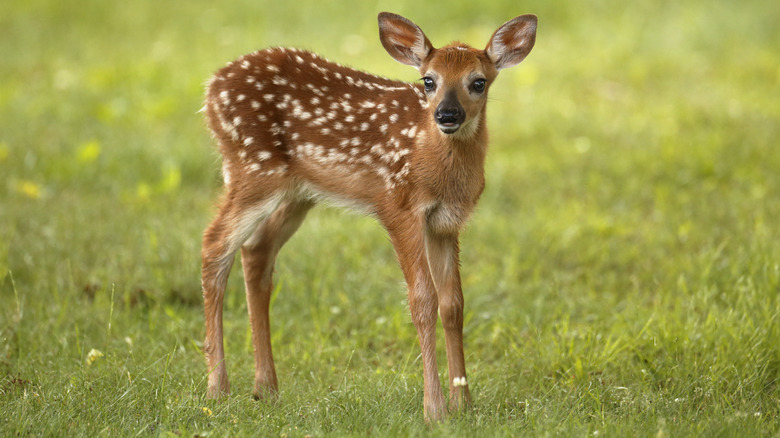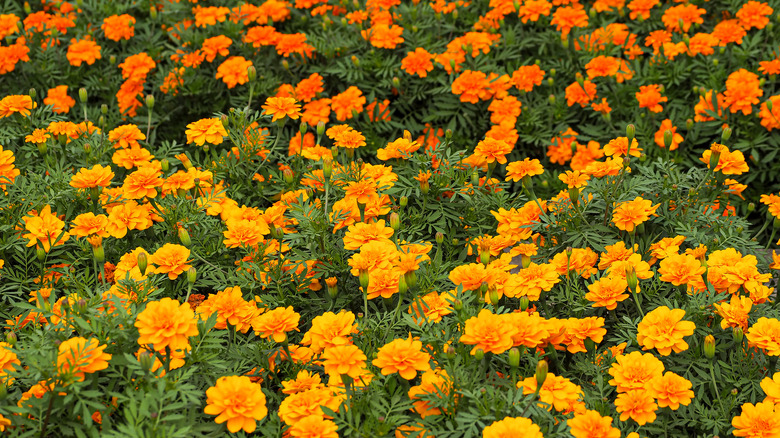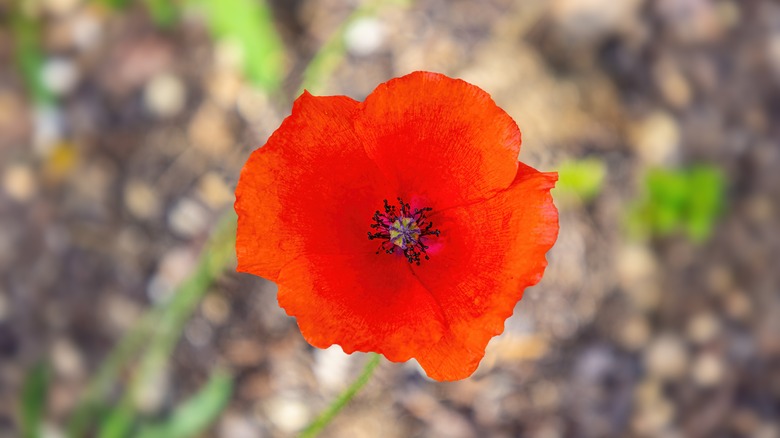Plants That Keep Away Deer
There are 30 million white-tailed deer in the United States. To thrive, one will need to consume up to 8% of its body weight daily. That translates to as much as 12 pounds of food each day for an adult male, as calculated by the National Deer Association. Your garden might be an irresistible stop on its eating itinerary, but there are numerous ways to prevent this cute but voracious visitor from decimating it.
Barriers, noise-makers, motion-activated sprinklers, and chemical repellents are all parts of the deer-defense arsenal. However, there is a natural approach that can discourage deer from munching on your garden's goodies: Certain strategically-placed plants are capable of repelling even the greediest deer. Plants that are highly aromatic, toxic, sharp or spiny, and ones whose foliage is fuzzy or hairy will be off-putting and can protect your garden, according to Pond Informer. No method is completely foolproof, however. Deer are wily, and a hungry one will eat almost anything. Fawns may also sample plants that adults will balk at.
Setting up your defense
There are several placement considerations when planning your deer-resistant property. Your defensive plants can be located throughout your garden, they can bolster the perimeter of your yard, or they can serve as sentries where deer are apt to enter. Flower bed borders, alongside a driveway, or abutting fences are possible sites mentioned by Lawn Love. A fence or trellis can be transformed into a deer-blocking barrier by winding a vine such as honeysuckle or wisteria through it. Rubbing fragrant oils on a garden's rocks or other surfaces can be helpful too.
It is prudent to protect deer-attracting plants with those that deer disdain. Surrounding coveted plants with those a deer will spurn is a good tactic.
When they are new and vulnerable, it is a good idea to spray your plants with a deer repellent. An interesting fact uncovered in a university research study: Deer exhibited a preference for fertilized plants, something to consider when protecting your garden.
Scented plants repel deer
Deer have a strong sense of smell, which detects predators and leads them to food. Scented plants will disrupt this ability, and ideally, the animal will keep its distance. Almanac recommends planting aromatic herbs (like salvia and lavender) or fragrant flowers (peonies or irises) as good a defense against deer. Chives, onions, and leeks will also do the trick, as will dill, fennel, and oregano (via Lawn Love). The same is true for bee balm, which also deters mosquitoes. Deer will cower from garlic. Russian sage works well due to its one-two punch of aroma and spiky flowers. Marigolds are effective as a deterrent, but their smell may offend deer and humans. Avoid planting basil and parsley, two deer favorites.
Pest Pointers suggests placing mint plants near those a deer is likely to assault, among them roses, hostas, geraniums, arborvitae, sunflowers, and pansies. Spearmint and peppermint are especially effective, and mint essential oils might also be used to fortify your garden. Deer like dogwoods, rhododendron, and fruit trees: These should be situated close to your house and surrounded by deer-repelling plants for protection.
Poisonous plants and other deterrents
Deer will eschew plants that are toxic, so daffodils, poppies, and foxgloves are good choices for your garden. Daffodils contain an alkaloid that is poisonous to deer and rabbits. Eating a bleeding heart plant will cause digestive upset and skin irritation, so a deer knows to steer clear, as do rabbits.
More deer-resistant plants include horseradish, tarragon, wild ginger, thyme and basil. Cacti will also serve as guardians of your garden. The prickly lamb's ear and barrenwort are considered to be highly effective, as is tansy, a plant so invasive it should be confined to planter boxes. Gingko, oak, magnolia, spruce, and mountain laurel are trees and shrubs that deer ignore, per Better Homes & Gardens.
Several non-plant deer deterrents are used with varying success. Mothballs, concentrated garlic spray, and fabric softener can be effective, but deer may eventually get used to them. Sprays need to be reapplied frequently, particularly after rainfall. In short, a multifaceted approach featuring deer-resistant plants and scents will prevent deer from nibbling your garden into oblivion.



